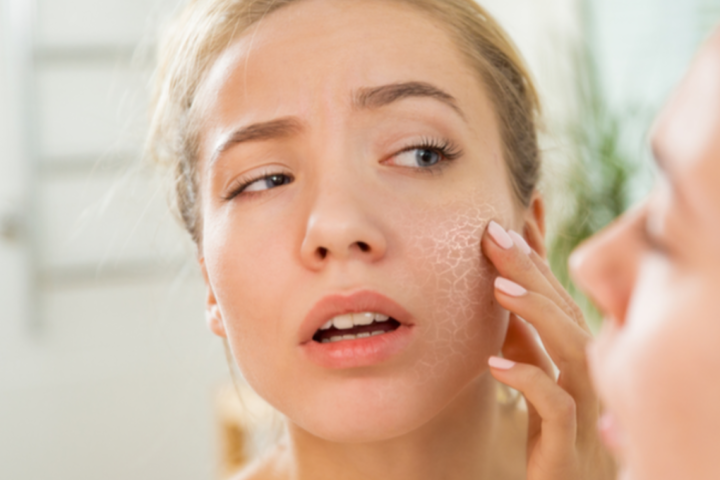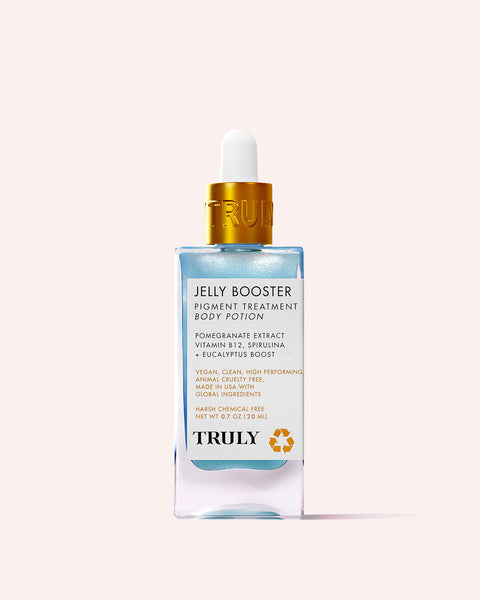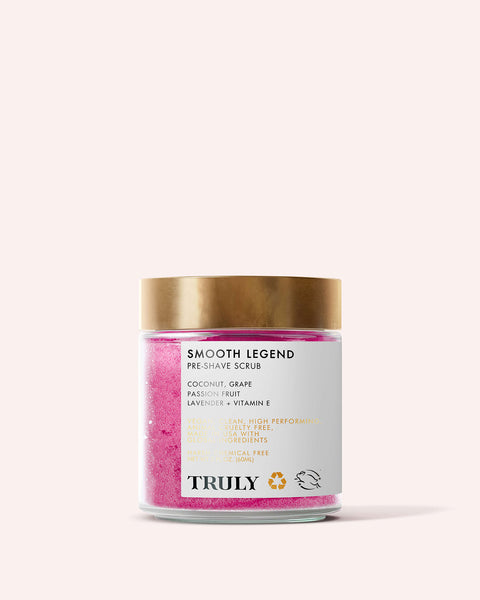Fix it: Dry Patches on Skin

Dry skin patches usually occur during the winter months when the air gets colder and drier. However, it may also be due to allergies or skin conditions such as contact dermatitis, eczema, and psoriasis. Once you can distinguish the cause of dry skin, it's easier to find the appropriate treatment.
Here's everything you should know about dry patches on the skin, including the factors that can cause dry skin and how to deal with them.
What are Dry Patches?
If you're noticing dry areas around your nose, eyebrows, forehead, or basically anywhere on the body, that's a sign you're dealing with dry patches. According to dermatologists, these dry patches are localized to areas where the skin is lacking in moisture.
A good way to tell if you're dealing with common winter dryness, eczema, or another skin condition is to consider the longevity and frequency of your dry patches. Skin conditions like eczema and psoriasis are chronic and recurring, while winter dryness tends to occur when the cold weather arrives.
Dry patches can vary in appearance. Some may be pink, others red, while some may be raised and others flat. Some dry patches may feel itchy while others simply feel dry.
What Causes Dry Skin Patches?
There are multiple causes of dry skin patches, but the most common cause is environmental changes like cold weather. Here are the most likely culprits of your dry patches.
#1: Cold Weather
If you're getting dry, flaky skin in the winter months, it's most likely the cool, dry air that's to blame.
"Skin tends to be driest in the winter because of cold temperatures, low humidity, and brisk winds," says board-certified dermatologist Flora Kim, MD, FAAD. "Plus, dry heat from heaters can dry out our skin even more because more moisture is lost into the air from our skin in these conditions."
The best way to combat cold weather-induced dry patches is to bring a humidifier into your home. Humidifiers add moisture into the air, helping to hydrate your skin.
#2: Hot Showers
Even the hot water from your steamy showers may be sucking the hydration out of your skin, leaving you dry. That's because hot water strips the skin of natural oils, leaving your skin barrier compromised and unable to protect your skin from harsh environmental conditions.
#3: Your Skincare Products
Overusing skincare like exfoliating AHAs and BHAs could be the cause of your dry, scaly skin. Even your daily cleanser or soap could be leaving skin parched if it's made with dehydrating ingredients or too many actives that leave your sensitive skin irritated and dry.
If dry patches are taking over your skin, try cutting back on products that are drying and switch to fragrance-free products. You may even be dealing with allergic reactions to certain ingredients
#4: Skin Conditions
Dry patches may potentially indicate a skin condition, such as seborrheic dermatitis, eczema, or rosacea.
Seborrheic dermatitis refers to dry, flaky patches that typically develop in your eyebrows and on the sides of the nose. According to the American Academy of Dermatology, SD occurs when yeast levels become too high, leading to flaky patches on the skin. It can be treated with zinc-based cleansers or shampoos.
Eczema, otherwise known as atopic dermatitis, is a genetic condition where the skin barrier isn't functioning as it should be, leading to inflammation, loss of hydration, and dry skin patches.
Rosacea is a condition where the skin is overreactive to the environment, with common symptoms including redness on the nose and cheeks, and dry patches.
If you think you may be dealing with one of the above skin conditions, we recommend booking an appointment with your dermatologist for professional guidance.
How to Treat Dry Patches on Skin
Fortunately, you can fix dry patches on the skin -- if you're sure it's winter-related. Here's how!
Follow a Gentle Skincare Routine
You don't need a 12-step routine -- you only need three to four: cleanser, moisturizer, exfoliator, and sunscreen.

Start by using a gentle cleanser like Truly's Super Matcha Facial Cleanser, followed by a hydrating face cream to seal in moisture and prevent dryness. Look for products that combine humectants like hyaluronic acid and glycerin with emollients like shea butter, ceramides, or coconut oil to lock in moisture, such as Truly's Cream Skin Face Cream. If you've got acne-prone skin, avoid using thick, heavy lotions which may exacerbate your breakouts.

Once a week, buff away the accumulation of dead skin cells with a gentle sugar scrub like Truly's Matcha Face Scrub. In addition to sloughing away dry skin, it also helps other skincare products like your serums and creams penetrate better.

Always use SPF daily to protect your skin from sun exposure and avoid flareups.
Try Our Dry Skin Kit
Diminish dry skin for good with our dryness-targeting collection of products to secure day-long dewiness. Featuring a face mist, cream, serum, and lip balm, these products use the powers of hyaluronic acid, coconut oil, shea butter, and collagen to hydrate, plump, and smooth out fine lines and wrinkles.

Our Dry Skin Kit features all the topical treatments you need to tackle cold climates and the dry skin patches that come with it. You can also use these products on other parts of the body -- or basically, wherever you're experiencing dry patches.
Maintain a Skin-Friendly Lifestyle
Besides over-the-counter creams and ointments, an easy way to prevent and treat dry skin patches is making better lifestyle choices. For starters, invest in a humidifier to add moisture into the air and thereby into your skin. Secondly, turn down your shower water temperature and limit your showers to no more than six minutes a day. And finally, drink more water to hydrate from the inside out.
We're all prone to getting dry patches on the skin. Unfortunately, it's a side effect of winter. However, with a few smart skincare products and lifestyle tweaks, you can fix dry patches and stop them from messing up your makeup routine.
























































